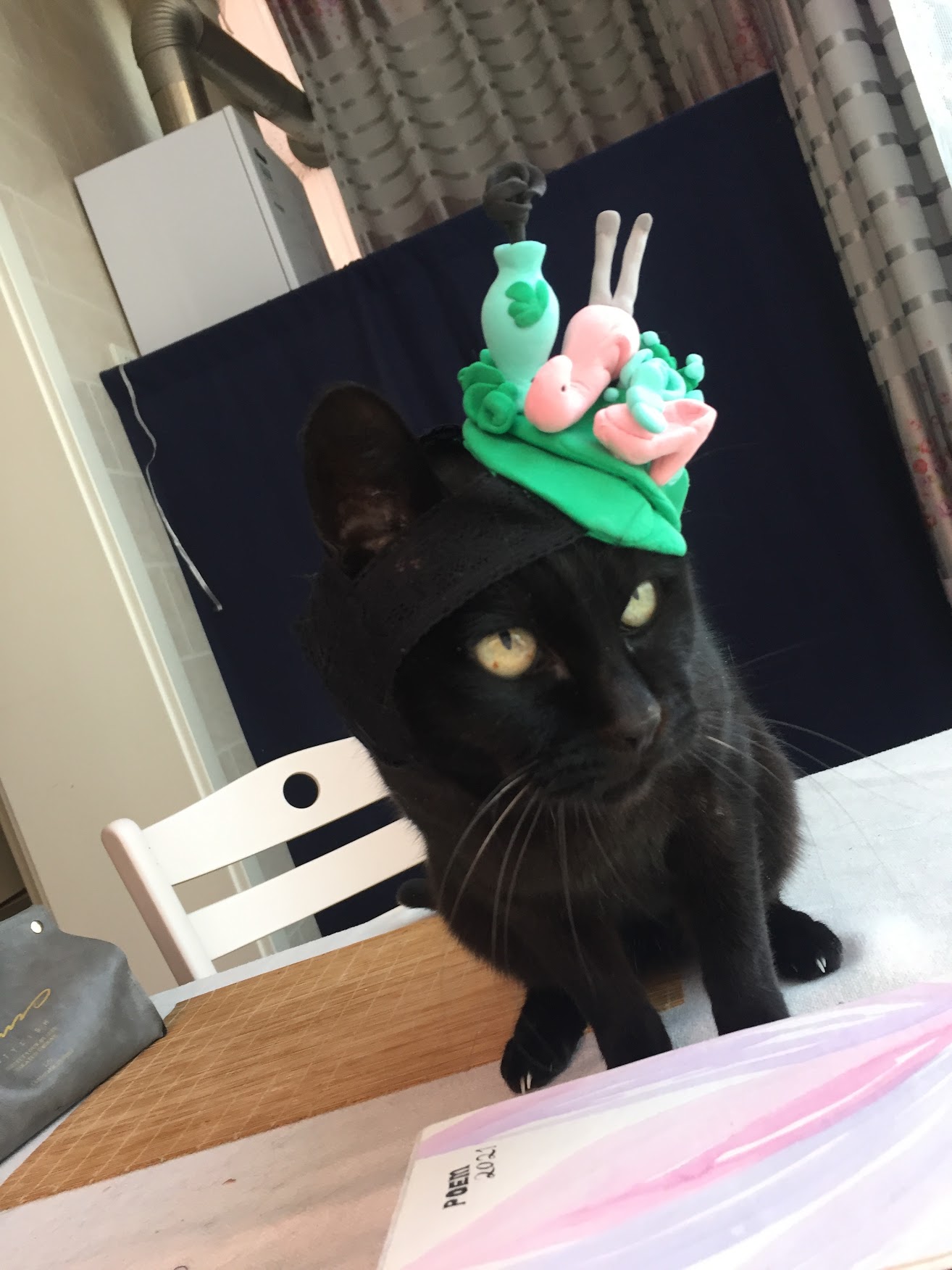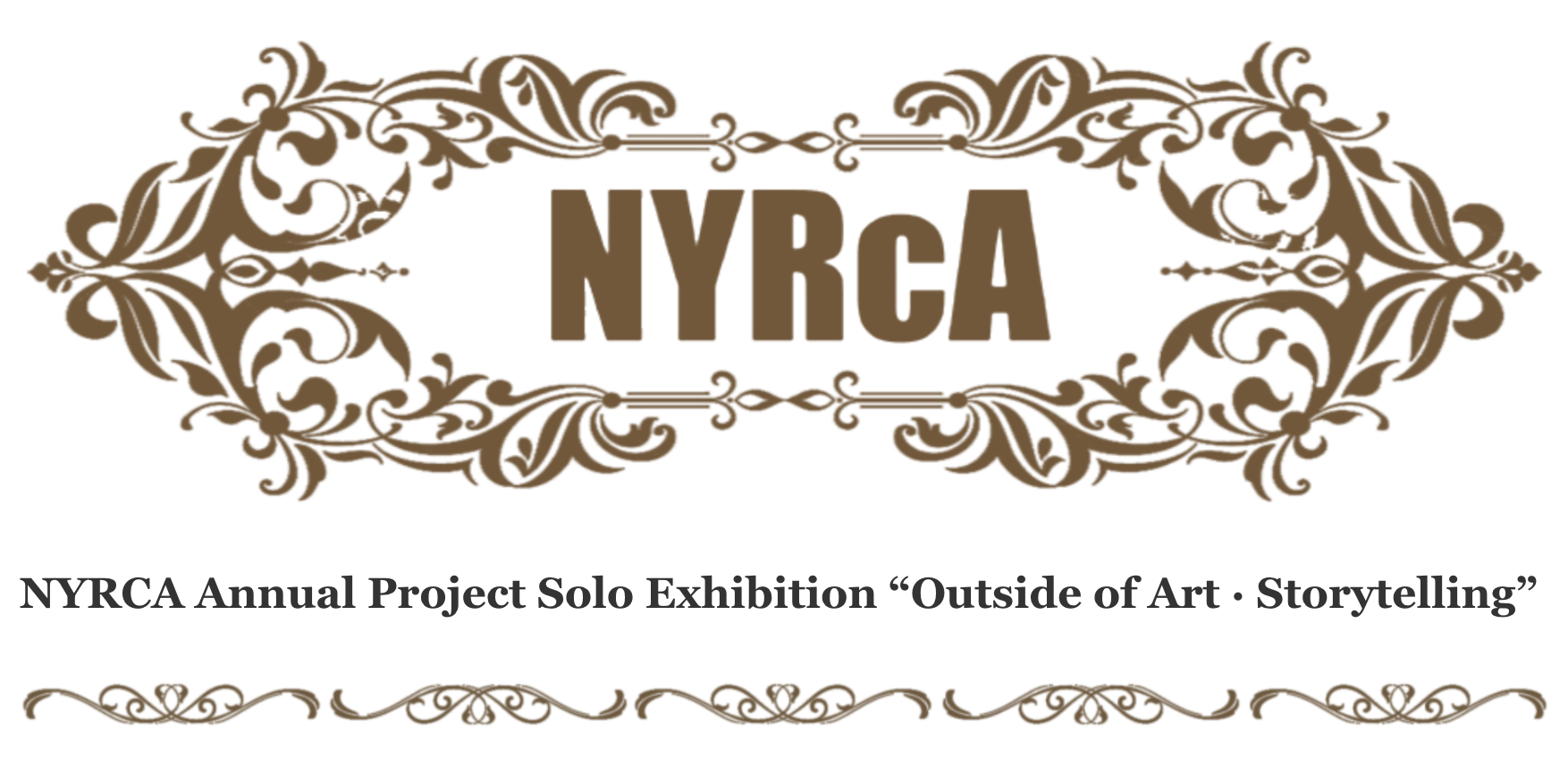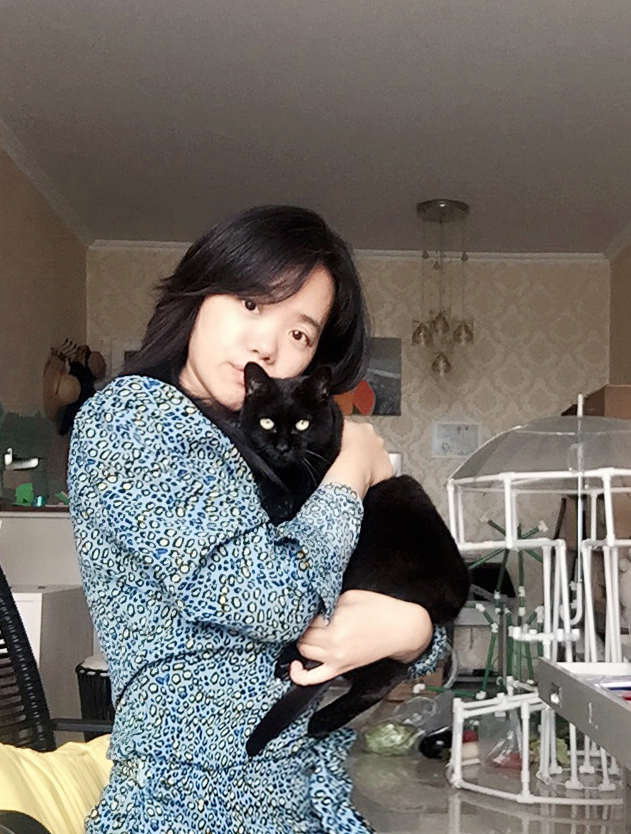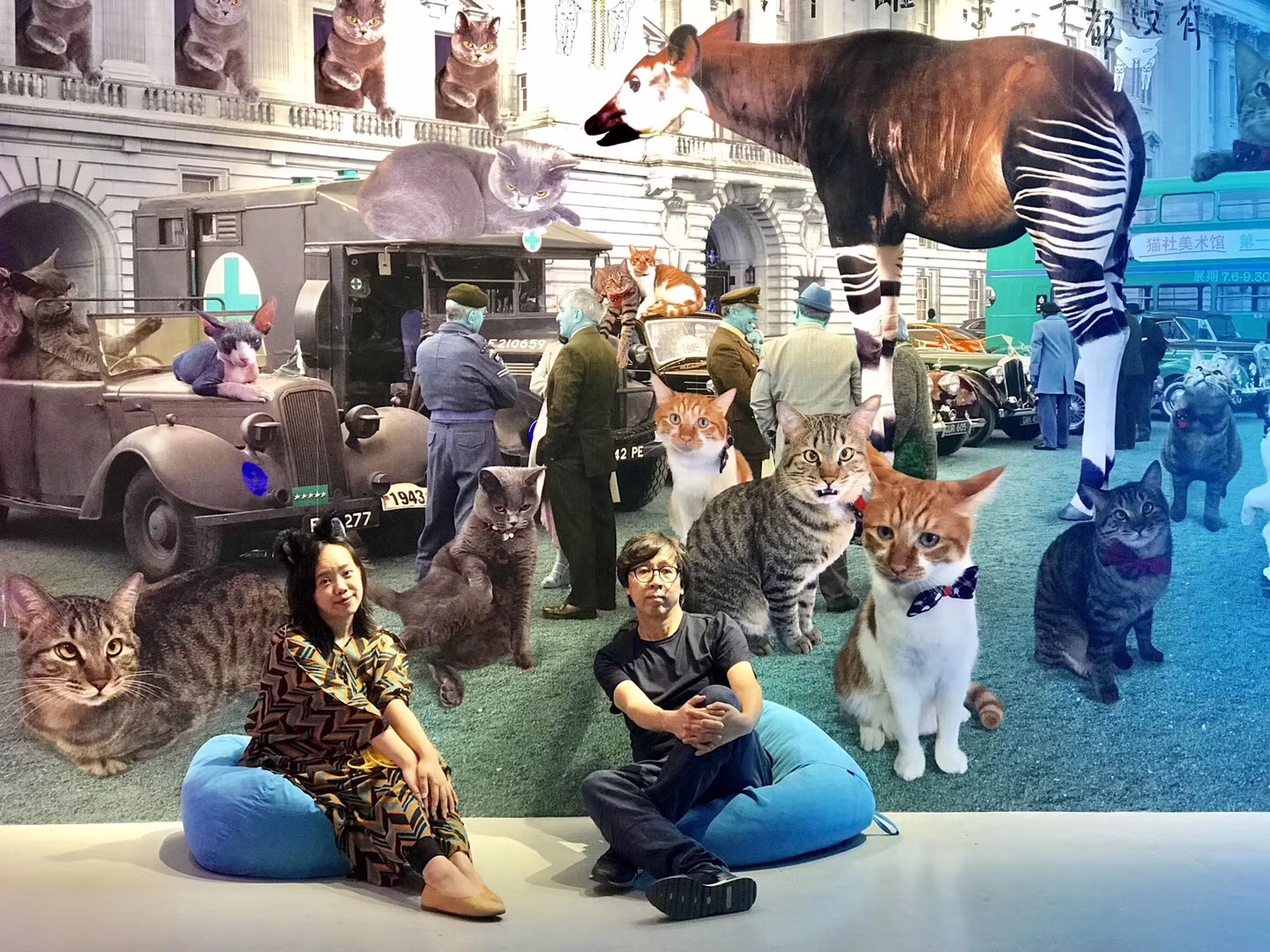
Orange Story
Juduo Qi
Right now, I’m sitting in front of my computer, typing away. There’s a cup of milk on the desk, and on a black plate, there are several hot pancakes with a crispy exterior and a soft interior, accompanied by nuts. The washing machine is making a spinning sound. There are no major illnesses or disasters, and I’m peacefully enjoying my breakfast, which is considered a blessing. However, for some elderly people who endured immense suffering in December of last year, they had to pay a great price to be able to enjoy their meals again.
Let’s go back to January 1st, when I was filled with panic and anxiety. I didn’t sleep a minute throughout the night and ended up boarding a Sichuan Airlines flight from Beijing to Chengdu. Later, I found out that my niece, who was studying in New York, cried for two days and two nights without telling her family. She heard that her grandfather and grandmother were admitted to the hospital, and she also heard that her classmate’s grandmother had just been admitted and passed away the next day.
In Beijing, my sister told me over the phone that our mother was accompanying our father, waiting for a hospital bed on a bench in the hospital. They had been waiting for a day and a night. After my father fainted, he lost control of his bladder. My sister also has coronary heart disease, and now she can only prevent our mother from going to the hospital. If I could go back, it would be best because she’s afraid there won’t be anyone to take care of our mother at home. She has to work, cook, and run to the hospital, unable to manage everything on her own.
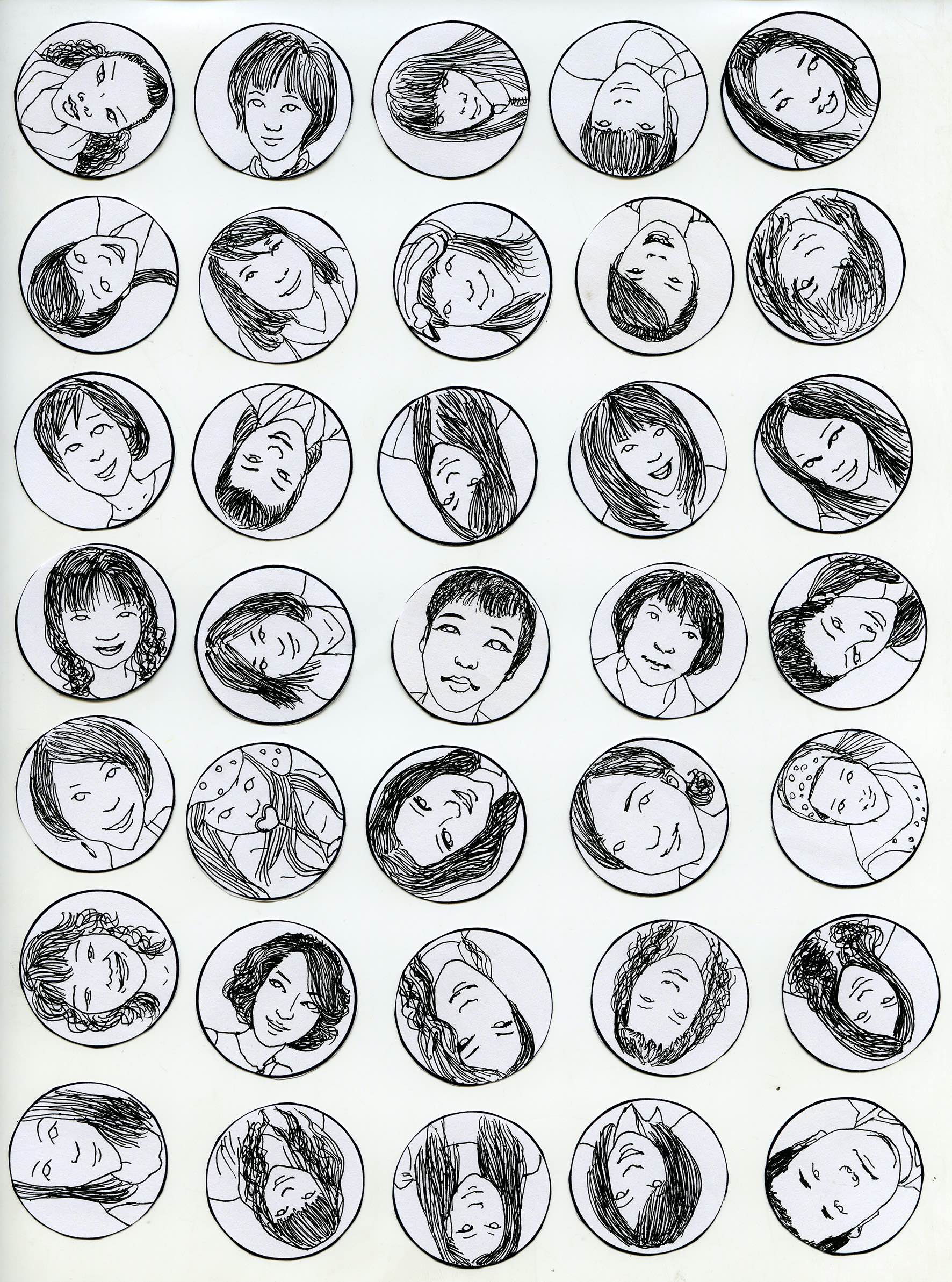
My sister said she received a call from a friend of our father’s in Chongqing three days ago. They didn’t know whether they should secretly call us, but they said our father went to the hospital for intravenous therapy and could hardly walk. My sister recalled that in the past few days, our father had been extremely quiet in the family group chat and hadn’t even posted a “good morning” message. She immediately decided to drive from Chengdu to Chongqing to pick up our father. It was already past 8 o’clock in the evening when she got off work and arrived home. Our mother had a high fever that had just subsided three days ago, and she had been experiencing a low temperature of around 37 degrees. Worried about our sister making a round trip between Chengdu and Chongqing overnight all by herself, she bravely volunteered to accompany her as the co-driver.
In November, my sister had just lost a Labrador Retriever who had been with her for 14 years. She told me that she burst into tears while driving alone and secretly spent thousands of dollars to buy a burial plot for the dog named “DouDou.” She didn’t tell her daughter who was far away on the other side of the earth, but she left a place of remembrance for DouDou. When she returns, there will be a place to commemorate their 14 years of companionship. They first met when the little girl was still in kindergarten and the puppy was just a few months old. In the blink of an eye, one went to college, and the other went to the “dog star.”
On the highway, from 8 o’clock the previous night until the early morning of the next day, even as the sky gradually brightened, my sister said she would endure any exhaustion. She had only one belief in her heart: her daughter had already lost DouDou, and she couldn’t let her lose her grandfather as well.
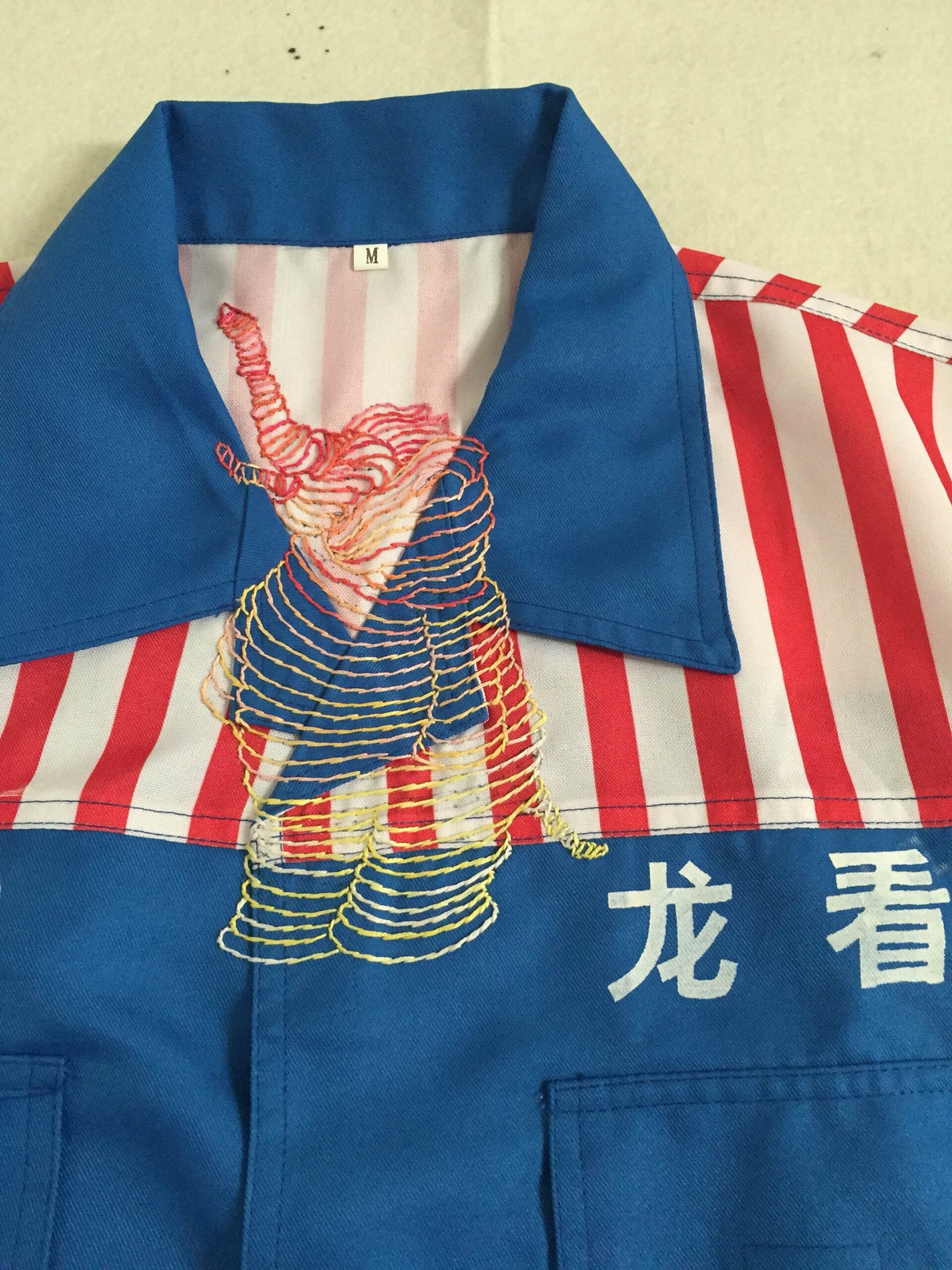
The Dangerous Nature of the Virus was known by my sister. Just a week ago, the father of her company’s boss from Leshan was admitted to the hospital in Chengdu, and he passed away within a week. Despite their connections and financial resources, they couldn’t save the elderly man.
As for my father, after arriving at his home in Chongqing, I heard that he couldn’t eat and was living alone. He didn’t want to bother or disturb anyone, not even informing our family in Chengdu. It had been five days since he last ate, thinking he could tough it out. But who would have thought that the illness would progress rapidly? He could no longer put on pants or bend down to tie his shoes.
Finally, my sister, with a humbled face, managed to get a bed for our father in the hospital room, albeit in the gastroenterology department. I heard that even the obstetrics and gynecology department had admitted 80-year-old men during that time.
On the evening of January 1st, I finally saw my father on the hospital bed. His eyes were cloudy, his cheeks were sunken, and his speech was short and hoarse. He wore an oxygen tube and had an IV drip in his hand. The elderly man in the neighboring bed couldn’t stop coughing, the sound echoing continuously.
The scene was distressing. Who would take care of me when I grew old and had no children to rely on?
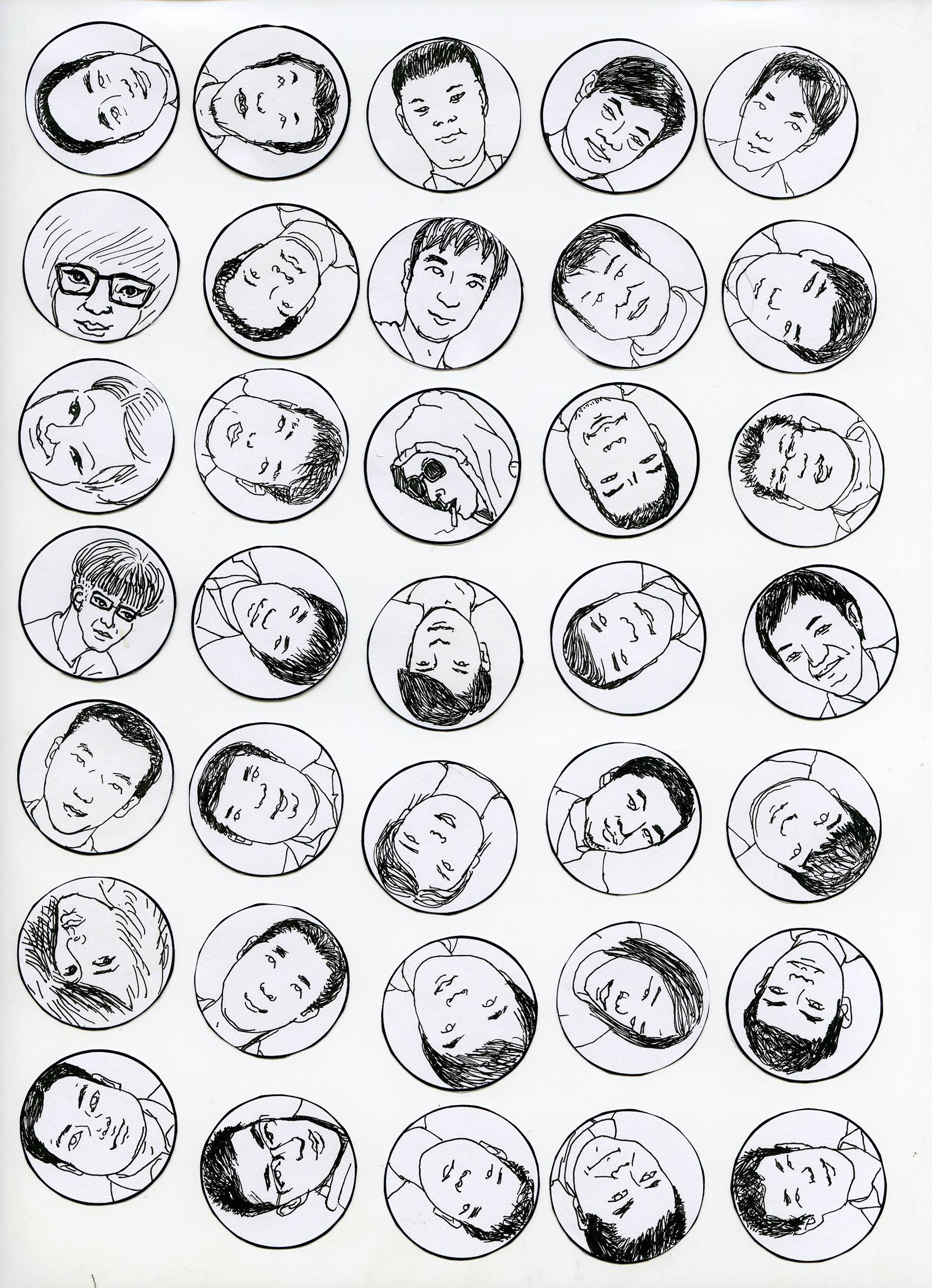
I heard that the US government provides free caregivers for elderly and sick people in low-income groups. In the previous months, I happened to receive approval for artist immigration. The future is uncertain regarding whether I’ll have a low income or face health issues.
As someone approaching their fifties, I still want to go out and explore, to start anew in a relatively ideal country on Earth. Why is that?
Is it related to my father, who has been living alone and enjoying his own company? He loves his freedom so much that he hasn’t visited me in Beijing for over twenty years while I work and live there. He considers his children a burden. But back in those days, there was no choice but to go with the flow.
I remember him saying when I was young that living past sixty would be sufficient. Coincidentally, when he turned sixty, my niece asked our grandmother to stay in Chongqing for a few more days. Originally, we planned to return to Chengdu, but on the previous evening, my father suddenly had difficulty breathing. He could hardly move, and once he arrived at the hospital, he was immediately taken to the ICU. His heart rate was dangerously low, only 30 beats per minute. He underwent surgery to have a pacemaker installed.
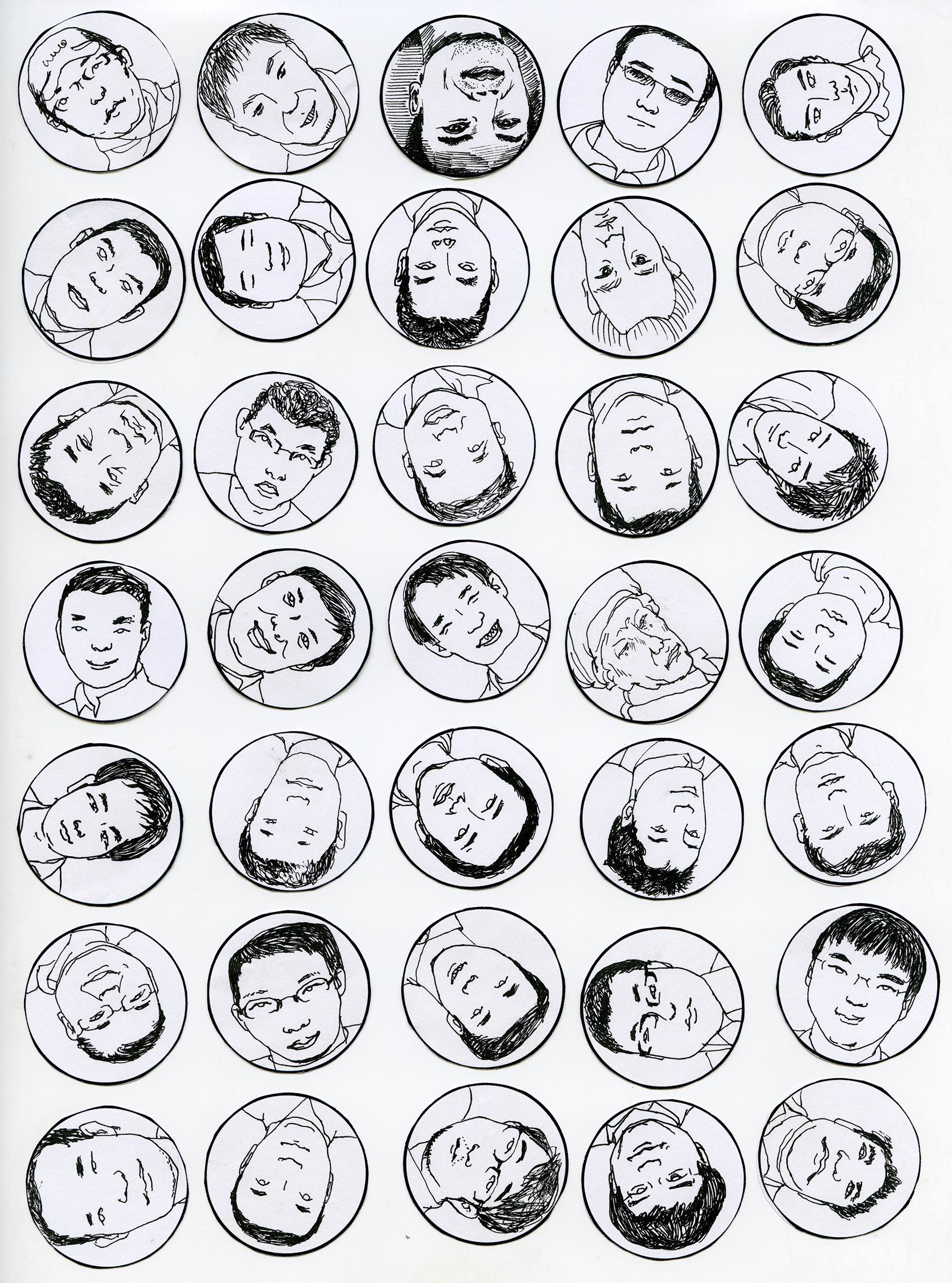
This is the price of his freedom. He almost made it past sixty, only to face the possibility of it all ending in his seventies. Will his continued life bring any changes? Will he learn to cherish his family more and reevaluate his long-irritating wife? She takes care of him diligently every day, but she also radiates negative energy, constantly complaining. She has been a chatterbox for half a lifetime.
For the past twenty or thirty years since university, I have been reluctant to return home or even spend the Spring Festival there. It’s just repeating the same family scenes from my childhood. In my heart, I have an ideal image of parents who speak softly, negotiate, have a pleasant demeanor, and value every aspect of each family member’s life. Under the same roof, there are boundaries and limits, respect and tolerance. My second aunt and uncle come close to that ideal image. As a child, I secretly considered them my parents. My real parents were surprised, puzzled, and even a bit angry when they found out.
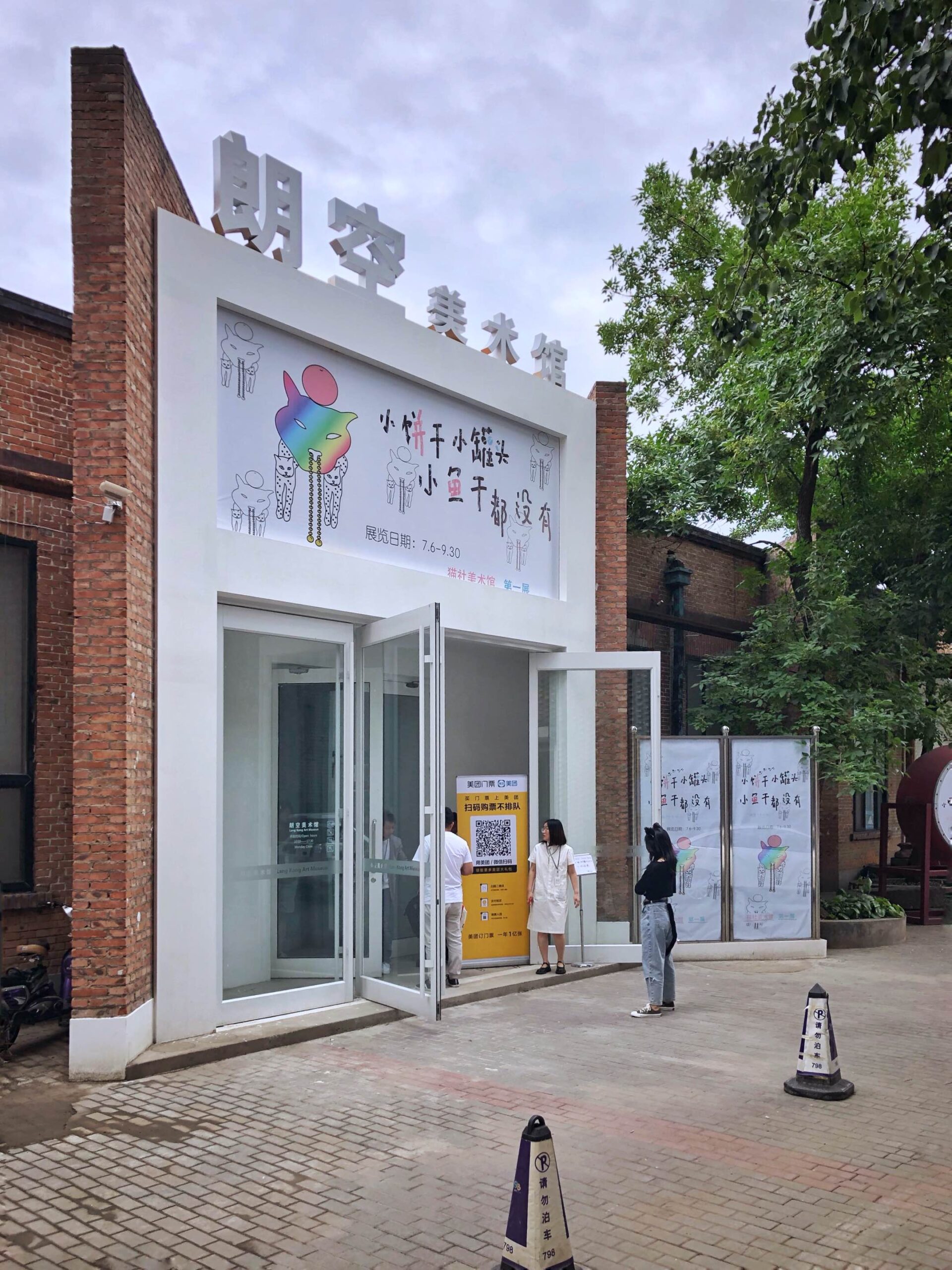
So, I got married and divorced. I love freedom, but I haven’t been good at choosing boyfriends, managing marriages, or raising children.
However, I am preparing to get married again, this time to someone else, in Los Angeles.
During the Spring Festival when I stayed in Chengdu, it was a suitable time for something significant: getting engaged. This way, my mother can feel at ease with her daughter about to embark on a journey far away. She hurriedly knitted a pair of wide-leg trousers in dark gray, along with two cashmere sweaters from before and a soft, red scarf. She said it was a memento from Mom. The unspoken message was that my mother had coronary heart disease and said, “Once you leave, it’s done. It takes you 12 hours to fly back, and air tickets are so expensive. It’s not as easy as traveling domestically. We might only meet every five years from now on. I’m already seventy-four. How many five-year intervals do we have left?”
When a person comes into the world, they must fulfill their mission.
After the divorce, I embarked on the path of a professional artist. Living alone in Beijing, I started to realize my own value. I inherited my father’s love for freedom and his artistic talent. I can endure hardships, explore untapped abilities, broaden my horizons, and await a suitable partner. Together, we can fulfill and conclude this lifetime.
We both had the fear of our first failed marriages, so we discussed and drafted a plan, continuously refining rules for every aspect of our life together. Since we hadn’t held hands before getting engaged, this seemingly traditional marriage felt somewhat sacred.
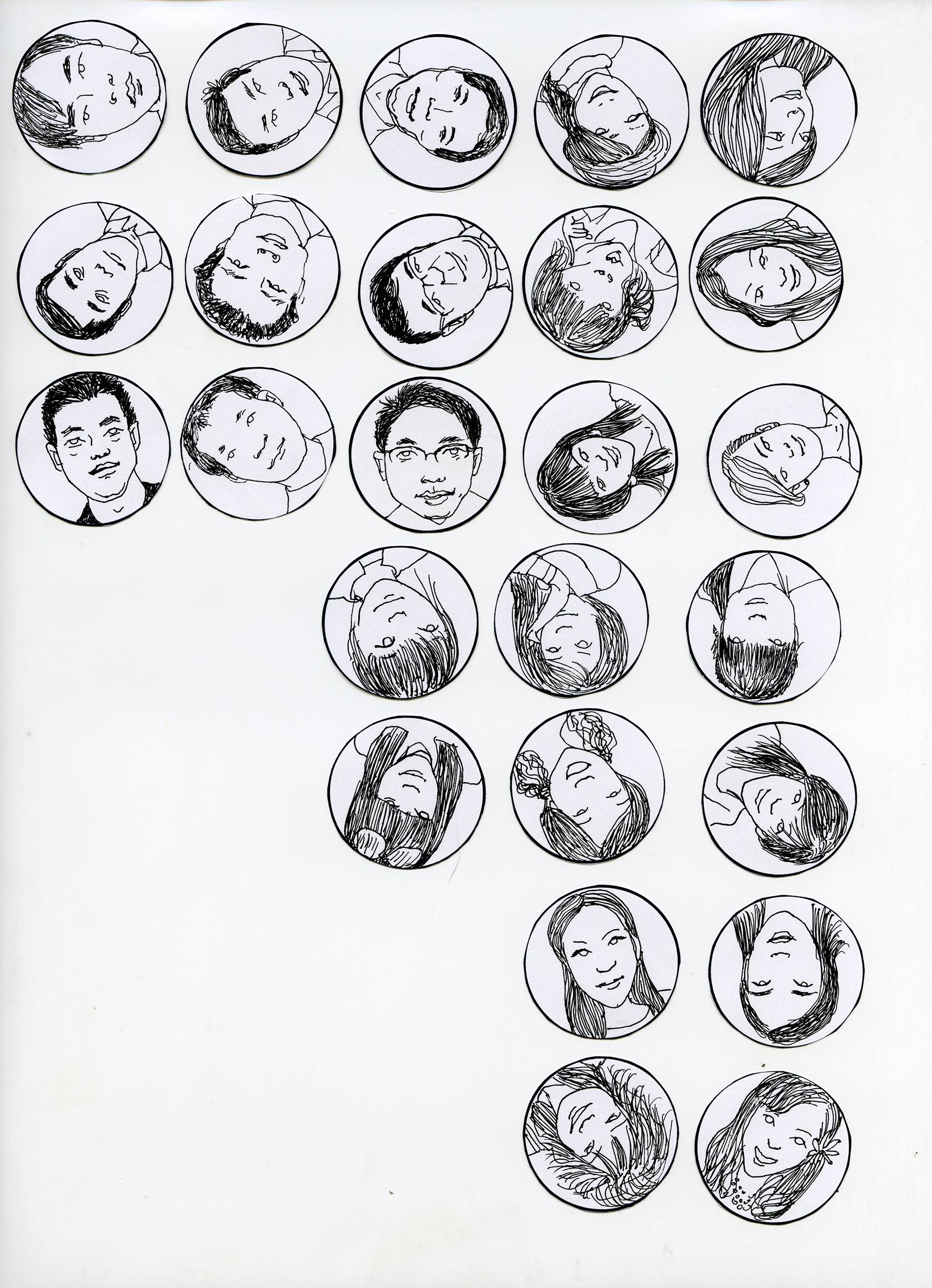
Not being able to meet in person, we chatted for months before he realized that my skin wasn’t as smooth as his, which caused me to lose some of the goddess-like status I had held in his mind for many years.
Fair and flawless, delicate to the touch, and other descriptions pointing to a noble woman with carnal desires made me feel passive. Suddenly, I found myself overshadowed by male dominance and attacked by mainstream standards that favor perfect genes and noble birth. Honestly, I also liked smooth and delicate fair skin, but at the same time, it made me feel inferior. It was like the difference between a maid and a princess. Regardless, I wanted to find a way to break free and not let myself feel insecure.
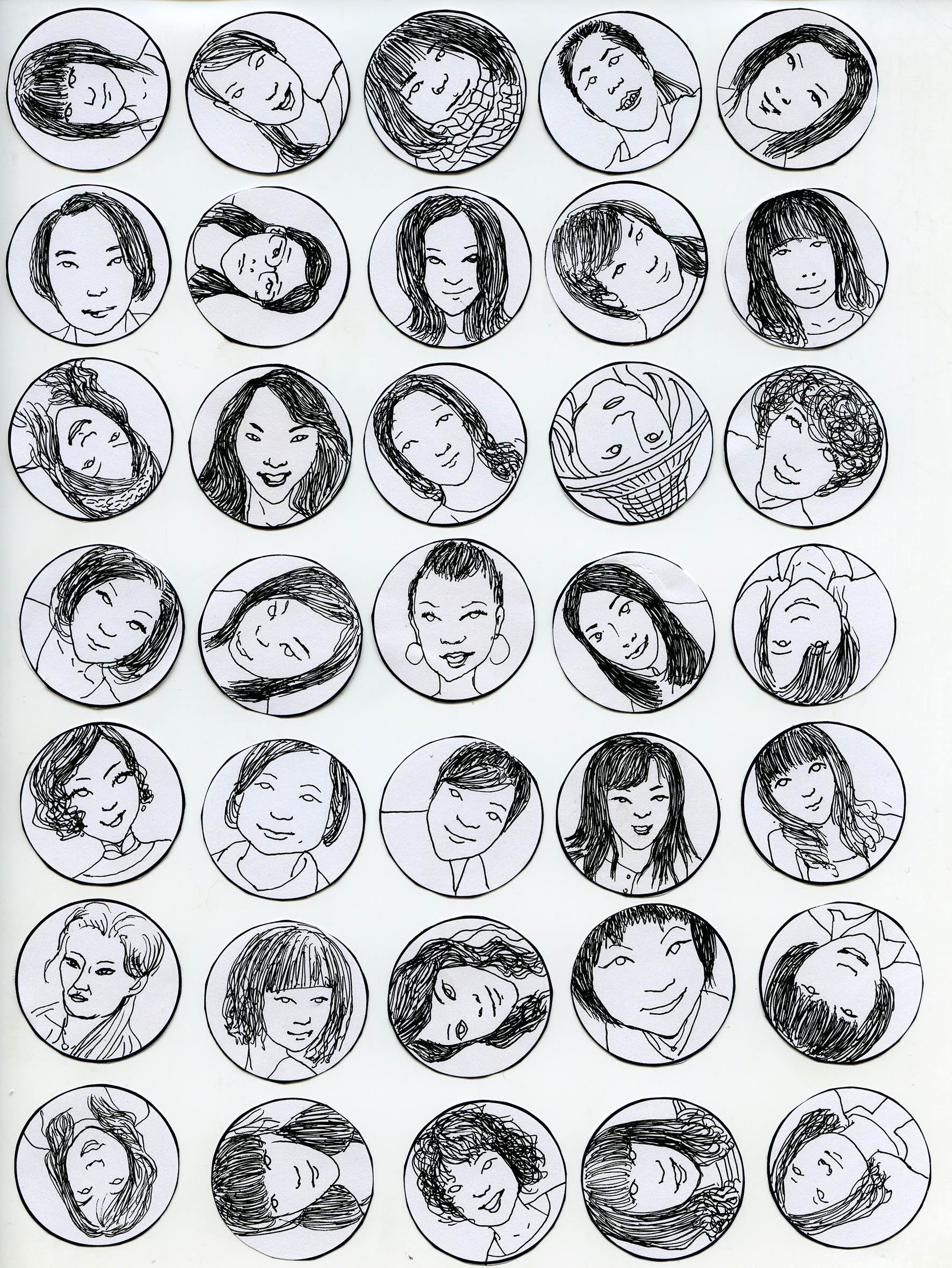
Our skin is inherited from our parents, something I cannot change, nor is it my fault. Since one person has smooth skin, both of them can enjoy it. If that’s not enough satisfaction, he can wear my clothes and become me. I can wear his clothes and become him. In the end, when I use theatrical humor to suppress his interest in smooth skin, it can be said that the study of art history comes into play. During the Renaissance, Raphael excelled at depicting smooth and delicate skin, and historical records indicate that he indulged in pleasure but died at the young age of 37. Five hundred years later, Frida Kahlo painted herself with two eyebrows connected and depicted herself with a mustache, enduring a lifetime of pain, forging an indomitable artistic life full of brilliance.
The development of art history revolves around a revolutionary attitude of saying no, where old concepts that bind human nature give birth to new ideologies.
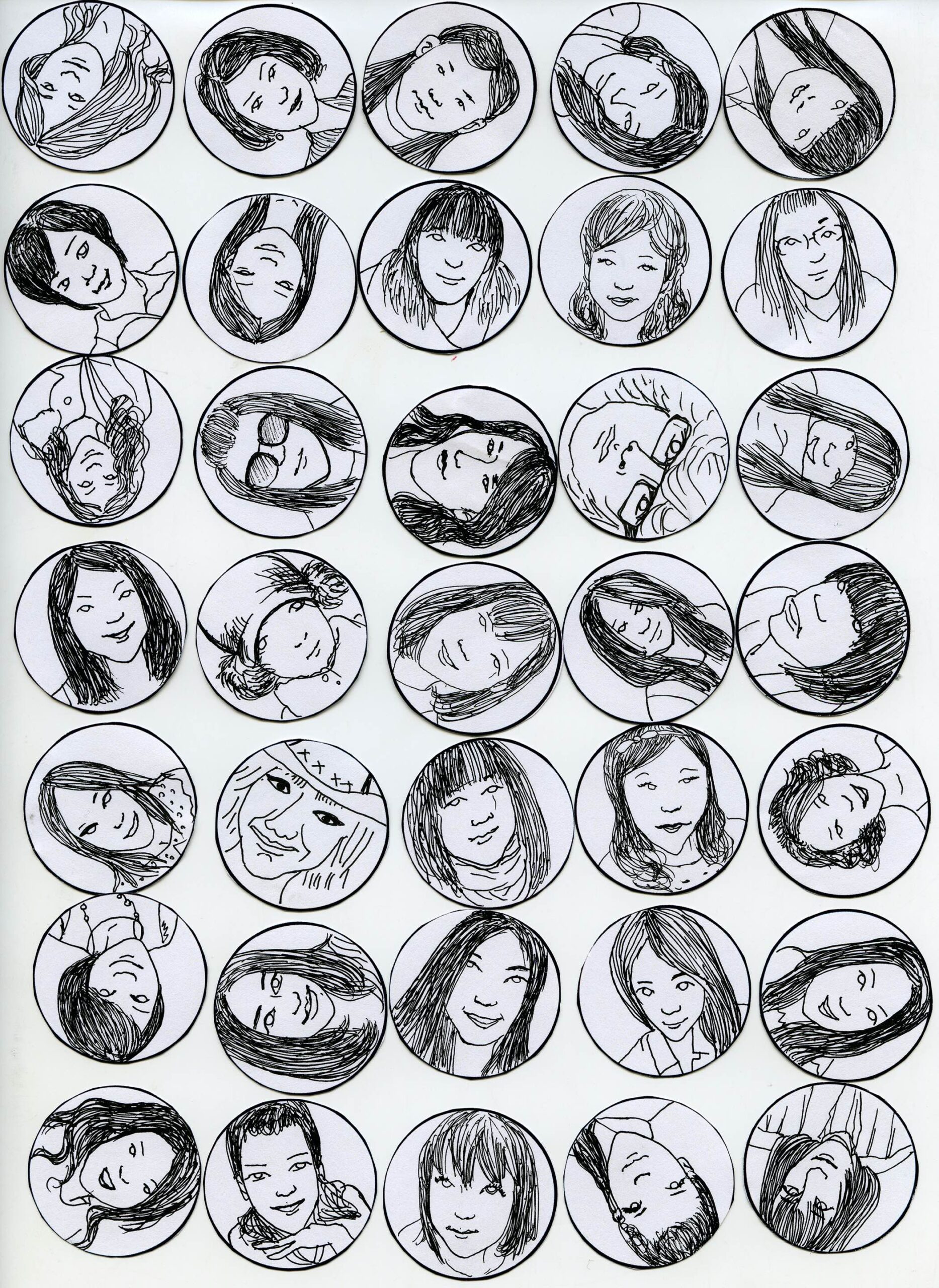
Parents argue and quarrel throughout their lives, but what they need most is to calm down and listen to each other’s needs. If they could swap clothes, put on their youthful appearances, and dress up as various characters, they might find themselves bursting into laughter and shedding tears of renewed love for each other.
The vast starry sky, life passing like a white horse, I hope they can empathize with each other and love each other as they did in the beginning.
Juduo Qi
was born in Chongqing, China, in 1973. From 2000 to 2023, he worked and lived in Beijing. He has recently obtained a US artist immigration application and is preparing to attend an art exhibition in the United States.
After graduating from Sichuan Fine Arts Institute in 1996 with a major in industrial design, he worked for three years in motorcycle exterior design. In 1999, he moved to Beijing and from 2000 to 2005, he worked in web design and game development for a Stone Age and mobile gaming company. During this time, he developed an interest in contemporary Chinese art and sporadically started creating collage works and digital paintings. In 2005, he resigned and began his career as an artist.
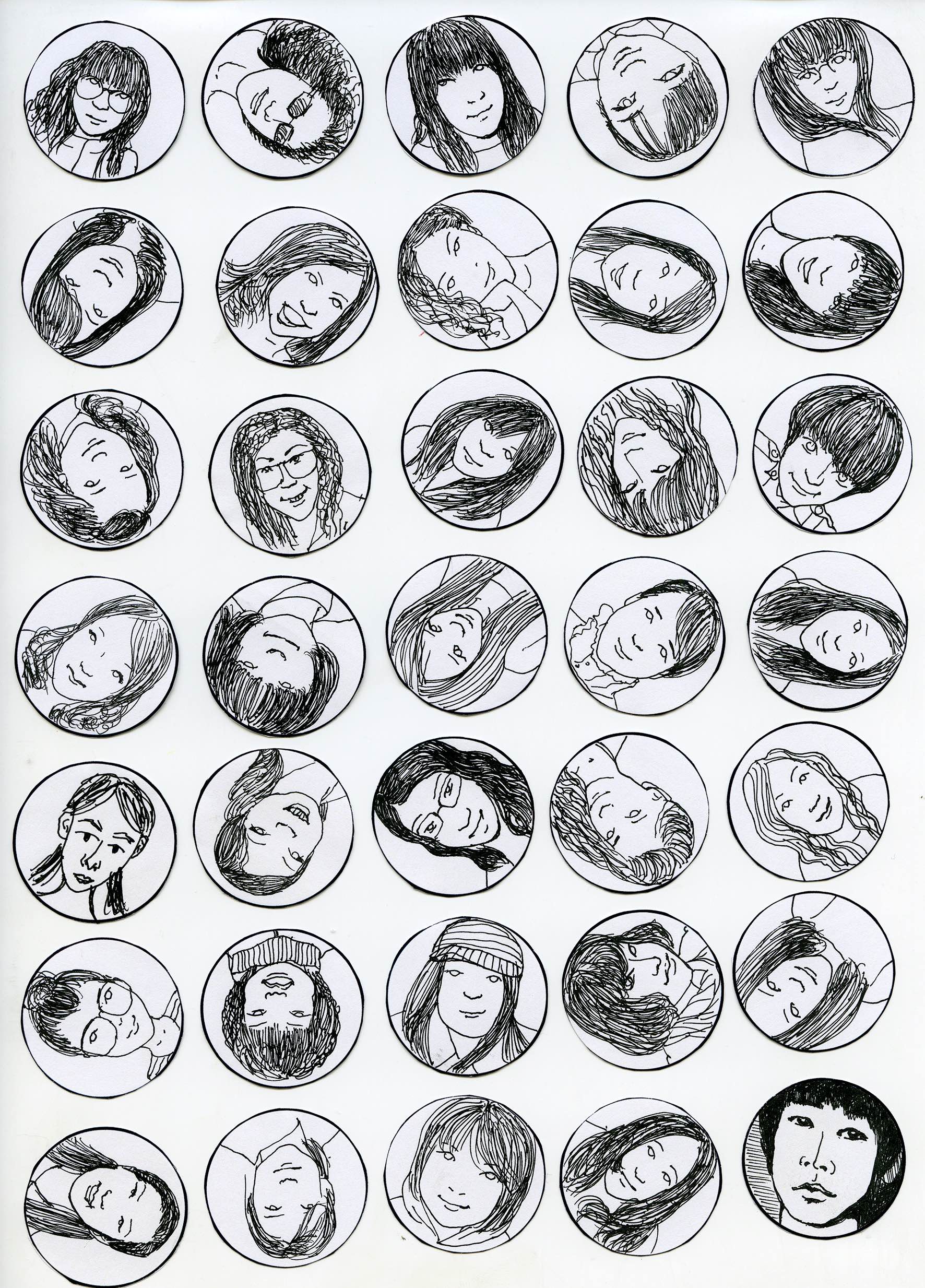
In 2008, he held a solo exhibition at Beijing’s Paris-Beijing Gallery, and his collage artwork “Vegetable Museum” received widespread acclaim. In 2009, his work “Vegetable Museum” won the Creative First Prize at the 2nd Colorful Guizhou China’s Primitive Ecological International Photography Exhibition. In 2010, he was invited by Martin Parr to participate in the 2010 Brighton Photo Biennial in the UK. In 2011, he attended the PhotoLA Los Angeles Photography Exposition and Art Basel Miami. In 2013, he was an artist-in-residence at Open Space Bae in South Korea. In 2015, he participated in the Contemporary Art Fair in Spain. In 2016, he exhibited at the Beijing CIGE Gallery Expo. Judo Qi constructs an artistic world full of poetry and metaphor using the most ordinary daily objects. In an extremely accessible artistic context, he brings together familiar and unfamiliar contemporary art, inviting people to experience the fantastical feelings and reflect on the issues related to everyday objects. His different series of vegetable collage works have been collected both domestically and internationally.
He has also collaborated with various brands, including the 2011 Hangzhou Liangzhu Cultural Village 5A Scenic Area joint exhibition, the 2012 Shanghai JW Marriott Hotel National Chef Summit joint exhibition, the 2016 Shanghai Wanhehaomei Art Hotel’s orchid buffet restaurant collaboration project, the 2017 Inner Mongolia Ulanqab Food Festival and Qionglai Tianfu Honggu Buffet Restaurant collaboration project, the 2018 Art Beijing exhibition in collaboration with Microsoft Surface titled “A Horse in the Room,” and collaborations with Haier refrigerators for new product releases in 2018 and 2021, as well as the 2020 Guangdong Shunde Future Food Design Festival.
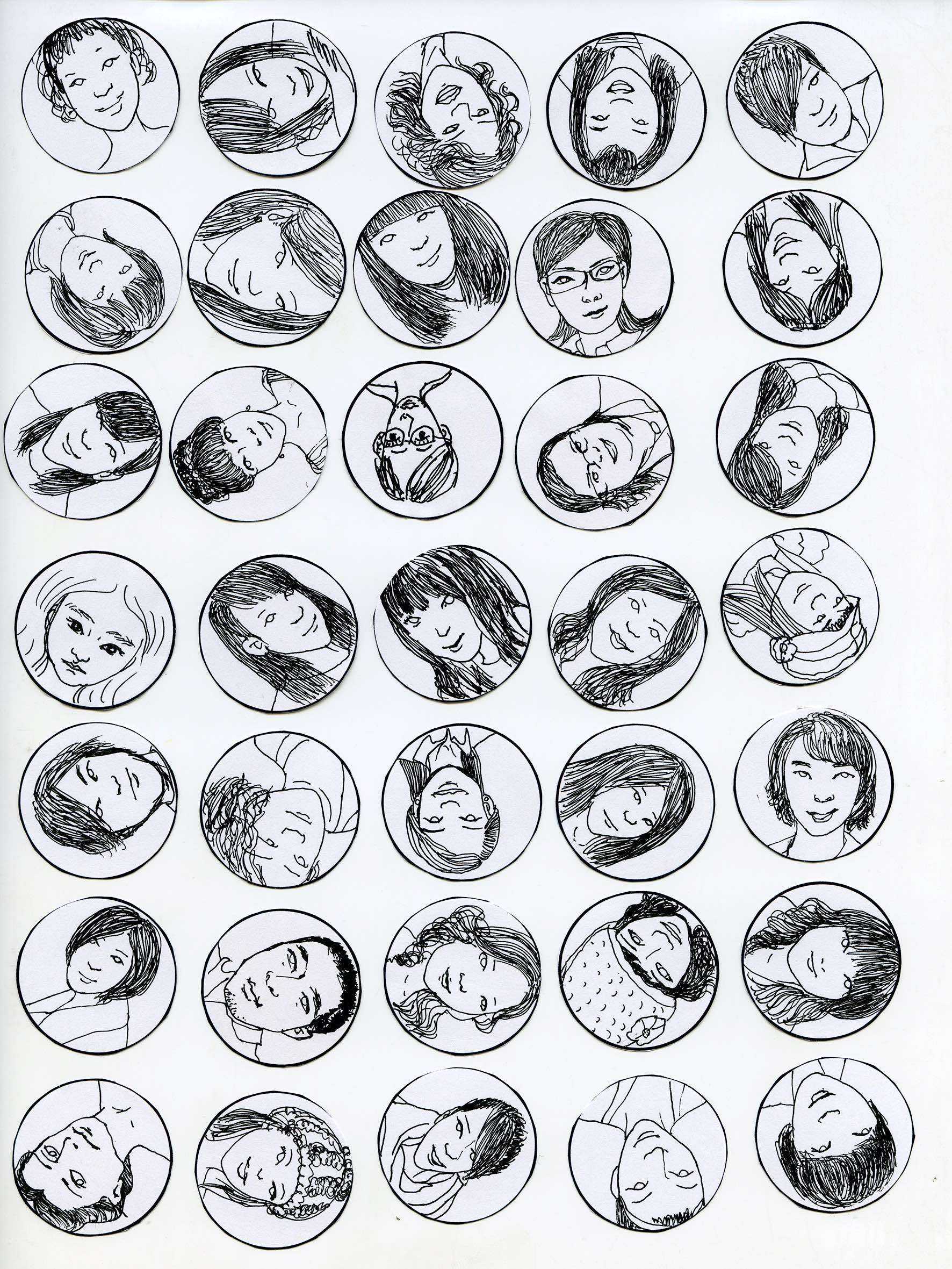
She finds it interesting to go to the farmers’ market to buy groceries as a source of creative inspiration and part of her daily life. In the company of two cats for over a decade, she has discovered the artistic value in the feline world and encourages fellow cat lovers to photograph their cats, organizing their creations into new images. She explores the value of incorporating art into everyday life. She invited Dong Jing to turn the cat exhibition into a cat-themed display with a steampunk and camp aesthetic. She hid cat images as part of a treasure hunt game at the exhibition, allowing viewers to experience the dual excitement of finding hidden cats. She designs clay accessories for her black cat. She pretends to need her mother’s assistance as a helper for clay sculpting, but in reality, she wants to experience the joy of handmade creations. The sculpting contents are specified, combining a flower, a person, a sofa, or a bed, with freedom in movements and clothing. She hopes to develop this into a project that enriches the leisure activities of the elderly. Using lace as her medium, she explores the modern woman’s attitude towards life. She creates poetry and pain by wrapping life and survival in patient gowns. She fired two ceramic characters, spelling out “trust,” placed them in a wooden box, and conducted a 20-person passing experiment, eventually compiling it into a video. She finds youth and happiness through her love for dancing.
Life Account
I’m the second and youngest in my family. According to my mother, when I was born and they saw another daughter, my father wasn’t as happy. He didn’t like holding me either.
During my childhood, I had poor health. Except for sit-ups, I failed in all other physical education classes. I was afraid of climbing the pole, and when I threw the shot put, it nearly hit my own foot. Once, during a makeup exam for a long-distance run, I pushed myself to the limit. The next class, my heart hurt, and on the way home from school, I felt dizzy for a while and then woke up. After entering adolescence in middle school, I experienced significant emotional changes and had many gastrointestinal issues. I couldn’t sleep the whole night, staring out of the window at the streetlights for a long, long time in my dark room. During evening self-study, I would turn away from the densely packed blackboard to admire the ever-changing scenery of the sunset outside the window.
But my academic performance was among the best in the class. I was the literary committee member and the emcee for class events. Drawing on the blackboard and arranging the classroom bulletin board were always my tasks.
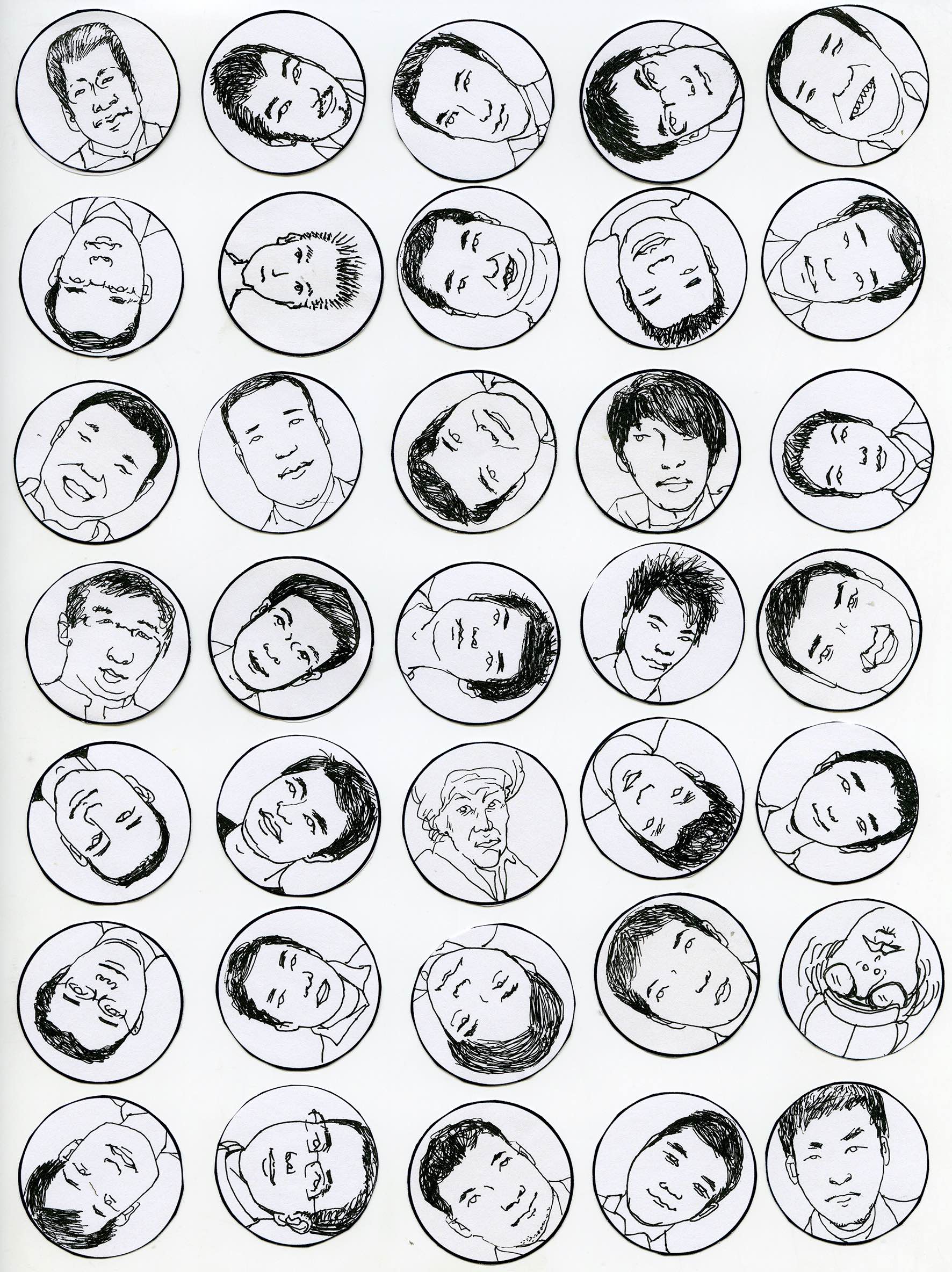
My life underwent a tremendous transformation when I began preparing for the art academy. I was exposed to rock bands like Queen and fell in love with a painting major student. I read Sartre’s philosophy and almost finished all of Simone de Beauvoir’s books, which had a profound impact on my life through her writing.
A few years after graduating, I married a university classmate and followed him to Beijing, where I have been living and working ever since.
Around 2000, with the booming internet industry, I entered the field of website design. I created an interesting personal website and my playful nature led me to work for online and mobile game companies. The influx of internet information brought about profound internal changes. The men I once admired gradually lost their radiance. My marriage reached its end.
I am extremely grateful to my ex-husband for introducing me to the world of art, which eventually led me to become an artist. Although initially, he strongly opposed me quitting my job in web design to pursue independent creative work, after shedding tears, I finally stood up against him and broke free from all the old relationship patterns. It was a completely new transformation and growth for me.
橘子故事
此刻,我坐在電腦前打字,桌上放著一杯牛奶,黑色的盤子裏幾塊烤熱的發面餅,嚼起來外脆裏軟,配上堅果。洗衣機發出轉動聲,沒有大病大災,悠然自得吃份早餐即為福份。而這份早餐對於剛剛經曆去年12月份煎熬的一些老人來說,他們花了巨大的代價才重新享用。
時間回到1月1日,我恐慌焦慮了一整夜一分鐘沒睡著坐上了從北京飛成都的川航。後來得知在紐約留學的外甥女同日也哭了兩天兩夜沒有告訴家人。她聽說姥爺姥姥進醫院了,又聽說她同學的姥姥剛住進了醫院第二天就過世了。
在北京,姐在電話裏說媽陪著爸在醫院板凳上等床位,守了一天一夜,暈過去後小便失禁,她還有冠心病,現在只能讓她不去醫院,如果我能回去的話最好,她怕家裏沒人照看老媽,她要上班還要做飯跑醫院顧不過來。
姐說三天前接到重慶老爸朋友的一個電話,說也不知道該不該悄悄給她們打電話,說老爸自己去醫院輸液,路都走不動了。姐回憶起最近幾天發現老爸在家庭群裏極其安靜,也沒有打卡發早安。她立即做決定要開車從成都到重慶去接老爸。下班回家6點半現在已經是8點多,老媽發了高燒剛退燒三天,還持續37度左右低溫,不放心女兒一個人連夜開長途成渝兩地一個來回。自告奮勇要求副駕陪同。
就在11月,姐剛剛失去了一只陪伴了14年的拉布拉多,她告訴我她一個人開車的時候嚎啕大哭,還花了幾千塊偷偷給豆豆買了個墓地。沒有告訴遠在地球另一邊的女兒,但給她留了個念想。回來有個祭奠的地方。豆豆陪她一起渡過了成長的14年,最初他們相識,小女孩還在上幼兒園,小狗才幾個月大。轉眼間,一個上了大學,一個去了狗星。
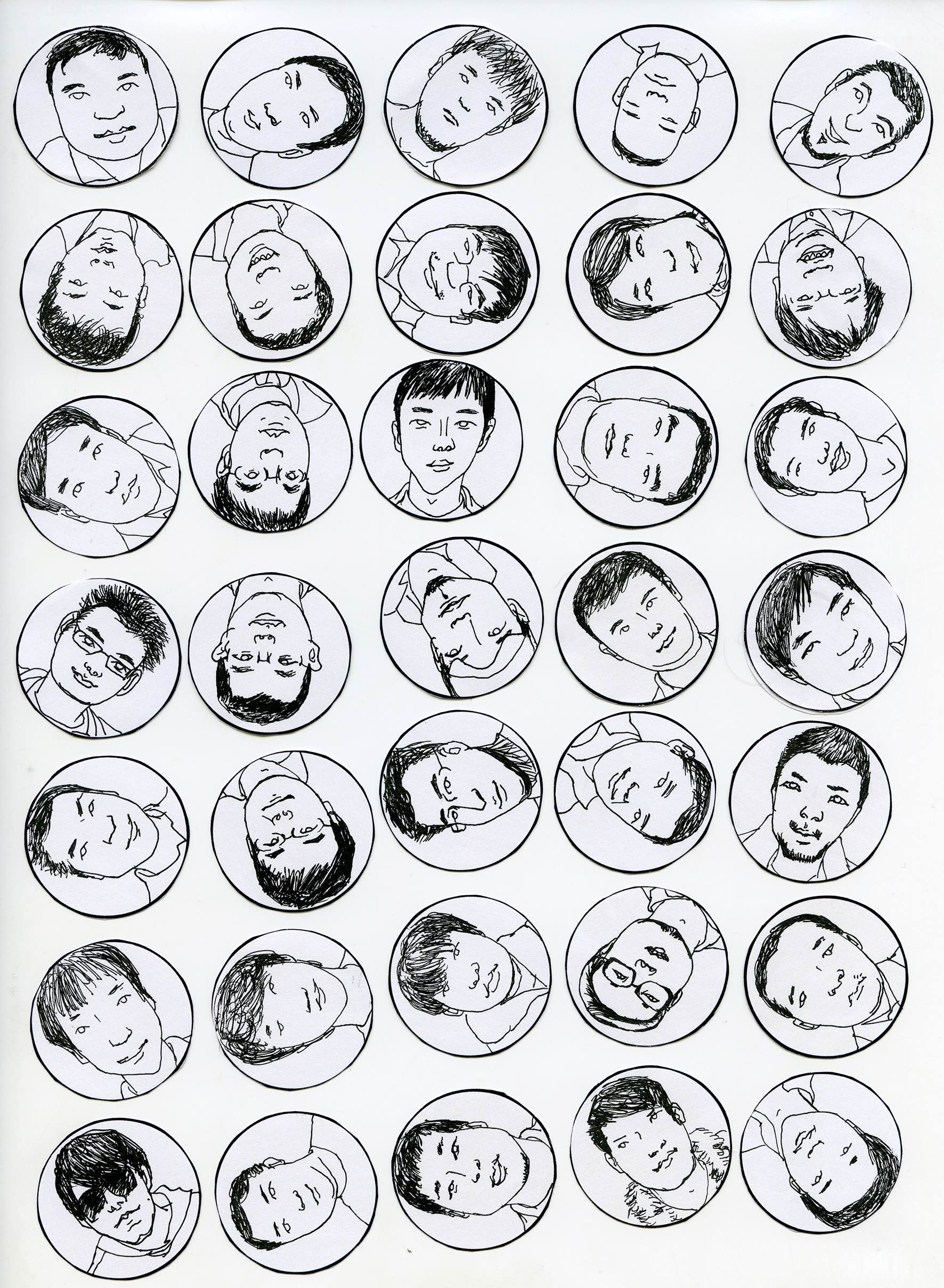
在高速公路上,從頭天晚上8點到第二天淩晨,再到天麻麻亮,姐說她再困也要扛住,心中只有一個信念,女兒已經沒了豆豆,不能讓她再失去姥爺。
病毒的凶險姐是知道的,就在一周前,她公司老板娘的父親從樂山到成都住院,一周就去世了。他們有關系也不缺錢但還是沒能救回老人。
而老爸呢,到了重慶的家裏,聽說他因為吃不下又是一個人住,不願意麻煩打擾別人甚至沒有告訴成都的家人,已經五天沒有吃飯,他以為扛一扛就好了。誰想到病情發展很快,自己已經無法穿褲子,彎腰穿鞋。
姐終於舔著老臉給老爸弄到一張病房裏的床位,雖然是肝膽科,聽說那時候婦產科都住進了80歲老大爺。
1月1日晚上,我終於看到了病床上的老爸,眼珠渾濁,兩頰凹陷,說話氣短有些沙啞,戴著輸氧管,手背上戳著點滴。旁邊床鋪的大爺止不住的咳嗽聲此起彼伏。
場面令人焦慮,等我老了膝下無子病了誰來照顧?
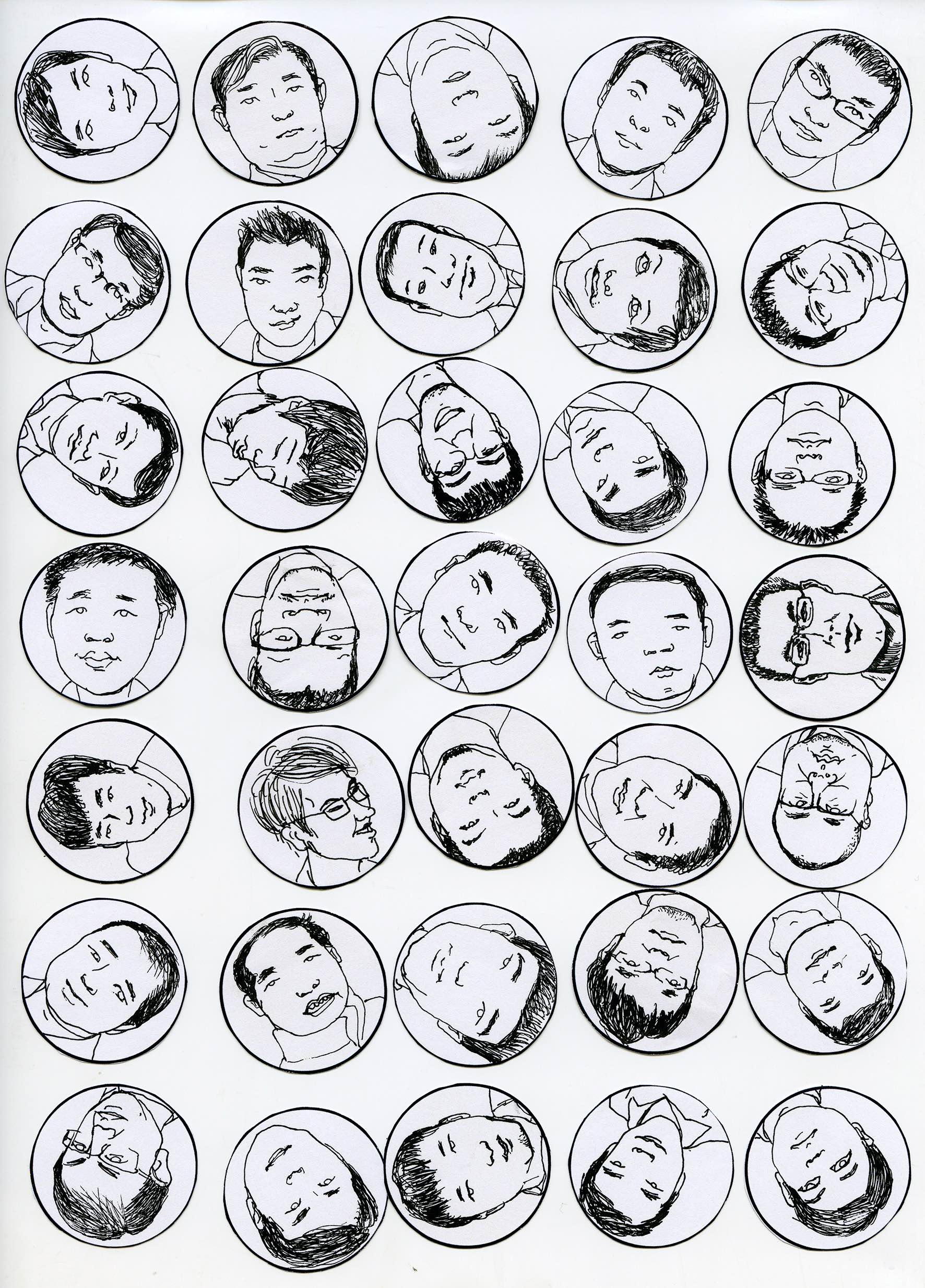
聽說美國低收入人群政府免費為老人病人安排護工。在此前的幾個月,我剛好獲得了藝術家移民的批准。未來是否低收入是否老病不得而知。
快奔五的人,還想出去看看,到一個地球上相對理想的國度重新開始。為什麼?
和眼前喜歡一個人長期獨居的父親有關系嗎,他熱愛自由,熱愛到我去北京工作生活二十多年也沒來看過我。家庭子女對他都是累贅。但又不得不在那個年代隨波逐流。
我小時候聽他說活六十多歲就可以了,正好六十歲那一年,外甥女讓姥姥在重慶多待兩天,本來打算要回成都的,就在前一天晚上,老爸就喘不上氣,也是路都走不動了到了醫院就進了ICU,測量心動過緩只有30,馬上手術安裝心髒起搏器。
這是他自由的代價,六十歲差點過去,七十多又差點結束。 再繼續的生命是否對他有所改變。是否更珍愛家人和重新審視他厭煩已久的老婆。這位又要每天精心照顧他,又要負能量爆棚整天不斷抱怨,絮絮叨叨過了半輩子的女人。
從大學以後之後的二三十年,我不願意回到家裏,春節也不回去。他們無非是重複那些小時候的家庭情景。我心裏有另外一對理想的父母形象,他們小聲說話,商商量量,和顏悅色,注重家裏每一個人的大大小小方方面面。同一個屋簷下既有界限又有分寸,既尊重又包容。我二姨和二姨父接近那樣的形象,小時候我私自認他們做我父母。爸媽知道後很詫異不解還有點生氣。
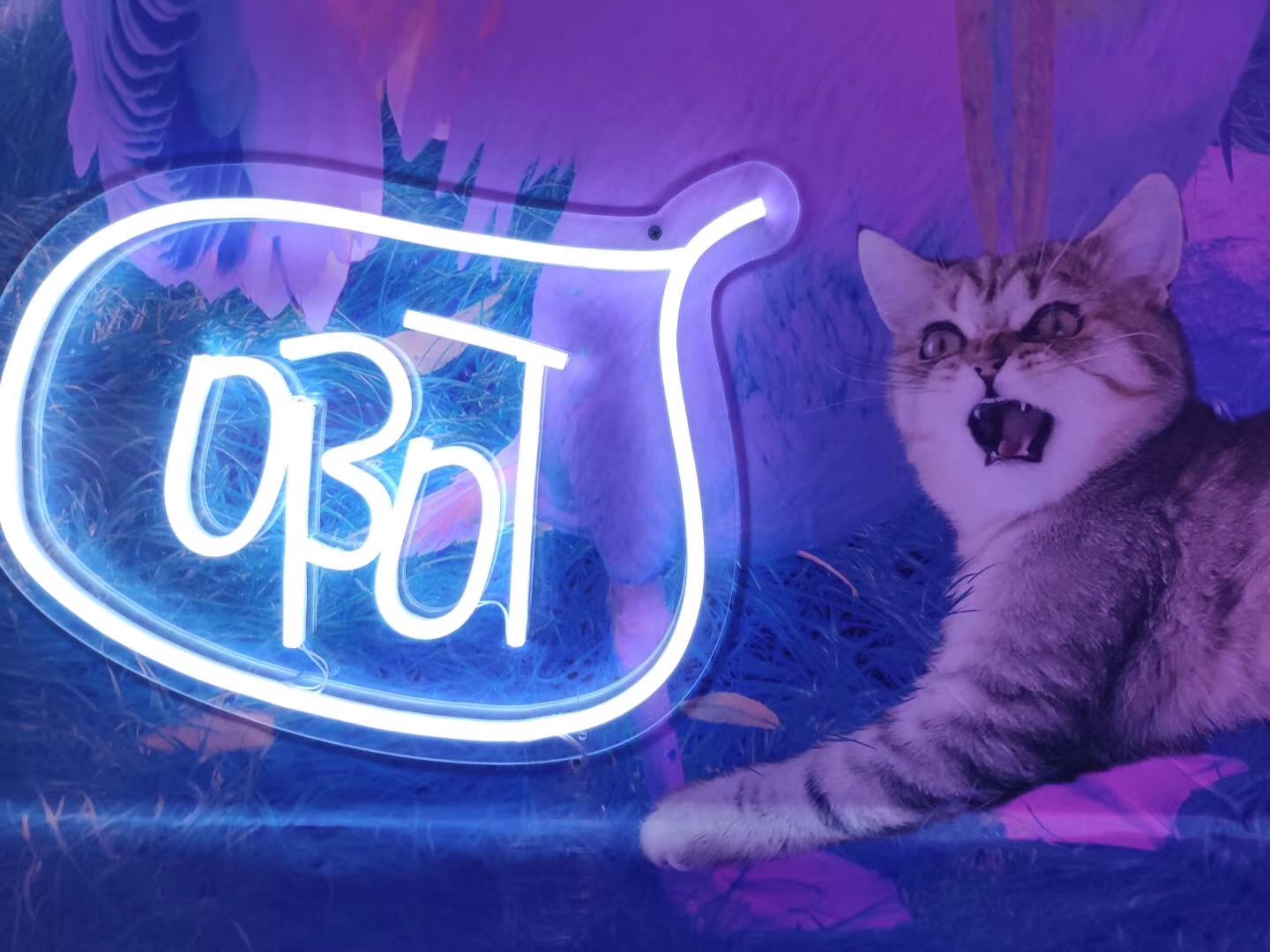
所以,我結婚又離婚了。愛自由且並不能很好選擇男友,經營婚姻以及養育後代。
但是,我又准備去洛杉磯和另一個他結婚了。
在我待在成都的春節,老媽,老姐,和一個不參與家庭事務與病毒作戰的老爸,這時候適合做一件大事,訂婚。
讓老媽可以放心即將遠走他鄉的女兒。她趕時間織好了一條深灰色羊絨闊腿褲,加上之前的兩件羊絨毛衣,一條紅色的同樣軟軟糯糯的紅色圍巾,說留個麻麻的念想。沒有說出的潛臺詞是老媽有冠心病,說哪天過去就過去了,你一走飛回來還要12小時,機票那麼貴,哪有國內那麼容易。以後見面怕都得論年,我已經七十四,五年見一面的話還有幾個五年?
一個人來到世上,要完成他的使命。
離婚後我才開始了正式的職業藝術家之路。一個人在北京生活,實現自我價值。我身上有老爸愛自由的基因。也遺傳了他藝術上的天賦,我可以吃苦,去開拓未被挖掘的能力,去長見識,去守候一位良人。與他一道圓滿結束這一輩子。
我們都有了第一次失敗婚姻的恐懼,商量了一份草案,不斷制定完善一些即將生活在一起方方面面的規則。因為還沒有牽過手就訂了婚,這份看似古典的婚姻顯得有些神聖。
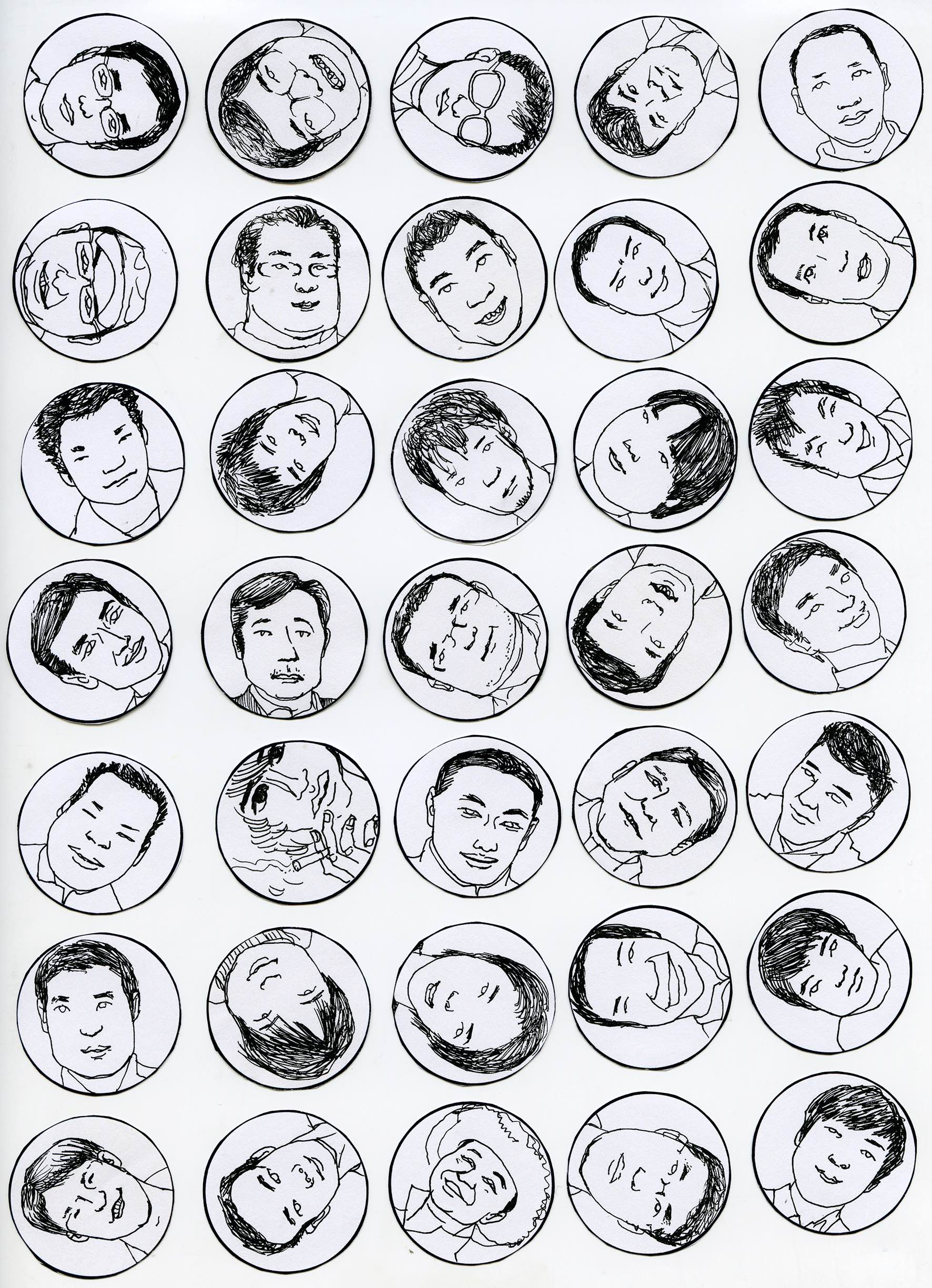
不能親自見面聊了幾個月,他才知道我手的皮膚沒有他細膩,這使得多年處於他心目中女神地位的我多少下降了些。
白皙光滑,吹彈可破,等等指向高貴女人且肉欲的語境讓我頓生被動。一時間被男權淩駕,被非完美基因遺傳非高貴出生的主流標准攻擊得無處可躲。 說真的,我也喜歡細膩光滑的白皮,欣賞的同時也自卑。仿佛丫鬟與公主的差異。無論如何我想設法跳出來,不讓自己感到自卑。
發膚受之父母,不是我能改變的,也不是我的錯。既然兩個人中有一個皮膚細滑,那兩個人都享用他一個人好了。如果還不夠滿意,他可以穿上我的衣服變成我。我換上他的服裝變成他。說到底,當我用戲劇化的趣味碾壓他對細膩皮膚興趣的時候,可以說,學的藝術史起作用了,文藝複興時期的拉斐爾描畫細膩光滑的皮膚技藝高超,史料記載他縱欲37歲就夭折了。500年後的弗裏達,畫兩條眉毛連在一起,畫有胡子的自畫像,終其一生在病痛中曆煉出不屈不撓的光輝的藝術人生。
整個藝術史的發展在革命一種說no的姿態,當舊觀念束縛人性的同時就會有新主義誕生。
父母吵吵鬧鬧一輩子,他們最需要安靜下來,傾聽對方的需要。如果他們可以換上對方的衣服,換上年輕時的打扮,變裝各式各樣的角色形象,他們可能一定會在爆笑中擠出重新憐愛對方的眼淚。
浩翰星空,人生如白駒過隙,
希望他們悲憫對方,相愛如初。
桔多淇
1973年生於中國重慶,2000-2023年在北京工作和生活.目前已經獲得美國藝術家移民申請.準備赴美髮展.
1996年四川美術學院工業造型專業畢業後從事三年的摩托車外觀設計.1999年前往北京,2000-2005年,在石器時代和手機遊戲公司做網站設計和遊戲開發.期間關注中國當代藝術,並零星開始了圖片拼貼創作和數碼繪畫. 2005年辭職開始藝術家職業生涯.
2008 個展在北京的巴黎·北京畫廊,《蔬菜博物館》拼貼作品受到廣泛好評, 2009第二屆多彩貴州·中國原生態國際攝影大展《蔬菜博物館》獲得創意一等獎. 2010年受馬丁帕爾邀請參加2010 英國布萊頓攝影雙年展,2011 年美國PhotoLA 洛杉磯攝影博覽會和邁阿密巴塞爾博覽會, 2013年韓國 Openspace Bae駐地藝術家, 2015年西班牙當代藝術博覽會, 2016 年北京CIGE畫廊博覽會,桔多淇用最普通的日常事物建構著充滿詩意和隱喻的藝術世界,在極其通俗的藝術語境中,把熟悉和不熟悉當代藝術的人們,一起帶入對日常事物構成的奇幻感受和問題反思。不同系列蔬菜拼貼作品被國內外收藏.
品牌合作項目2011杭州良渚文化村5A風景區合作展覽,2012 上海君悅酒店全國廚師峰會合作展覽, 2016 上海萬和昊美藝術酒店蝶蘭自助餐廳合作項目, 2017 內蒙古烏蘭察布美食節,邛崍·天府紅谷自助餐廳合作項目, 2018 藝術北京,與微軟surface合作展覽《房間里的一匹馬》, 2018 年和2021年與海爾冰箱新品發佈 2020 廣東順德未來食物設計節.
她因找到去農貿市場買菜具有尋找創作素材又日常生活而感到有趣。在與兩只貓深情相伴的十多年裏,亦從貓友圈發掘出生活中的藝術價值,號召貓友拍他們的貓,並整理創作成新的圖像,探討文藝進入日常生活的價值。她邀請董菁把貓展發揮成蒸汽波和坎普味道的貓主題展,並在展覽現場藏貓貓圖片遊戲讓觀眾獲得藏貓貓與尋寶的雙重感受,給她的黑貓用粘土設計頭飾;她假借需要母親做助手,捏粘土。實則讓她感受手工創作的樂趣,捏制的內容規定,把一朵花,一個人,一個沙發或者一張床組合起來,動作和服裝任意發揮,她希望以此發展成一個充實老人休閑生活內容的項目;她利用花邊創作。探討現代女性的處世態度,用病號服創作生活與生存包裹的詩意與疼痛。她燒制了“信任”兩個陶瓷字放在木箱裏做了一個20人的傳遞實驗,最後整理成一個視頻.她在跳舞的愛好裏獲得青春與快樂的體驗。
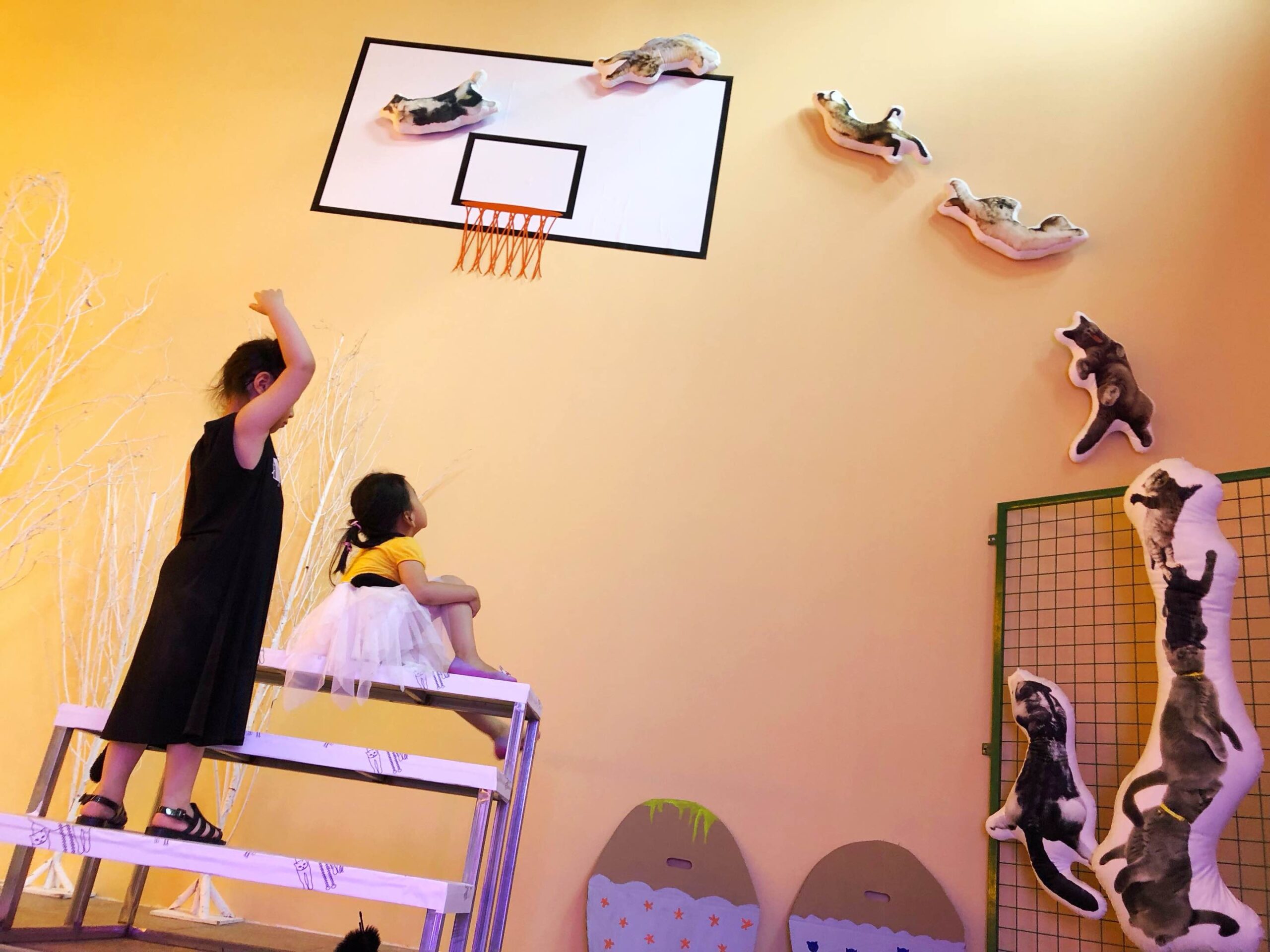
生活自述
我是家裏的老二也是老么,據老媽說生下來一看又是女兒,老爸也不那麼高興。也不愛抱我。
小時候身體差,體育課除了仰臥起坐其他都不及格。爬竿害怕,擲鉛球扔出去差點沒砸到自己腳背。有一次長跑補考拼盡全力,接下來一節課上心髒疼,放學路上暈了一陣又醒了。中學以後進入青春期,情緒變化大,腸胃問題很多,一整夜不能睡,晚上在不開燈的房間望著窗外的路燈發很久很久的呆。晚自習從密密麻麻的黑板轉過頭去欣賞窗外的夕陽分分秒秒無限風景。
但我其他成績在班上數一數二,是文藝委員和班上的主持人。畫黑板報布置教室曆來是我的工作。
從備考美術學院開始,我的人生發生了天翻地覆的變化。接觸到Queen等搖滾樂隊,和油畫系的學生談戀愛。讀薩特的哲學,幾乎看完了波伏娃所有的書,她的文字帶給我很大的人生影響。
畢業之後沒幾年和大學同學結婚,之後跟隨他到了北京,在北京工作生活至今。
2000年左右,互聯網行業蓬勃發展,我進入網站設計行業,做了一個有意思的個人網站, 愛玩的潛質被網絡遊戲和手機遊戲公司挖去工作。網絡信息帶來洶湧的內心變革,我曾經佩服的男人逐漸失去光輝。婚姻走入末路。
非常感激前夫帶給我藝術的引領,以至於我可以走上藝術家道路。雖然最初他很反對我辭去網絡設計的工作,開始獨立創作。哭泣之後,我終於反對了他和全部舊關系格局。那是一次全新的成長自我的蛻變。
